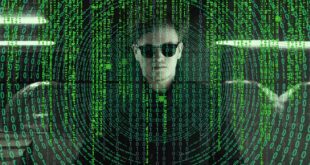Staying Safe Online: How to Avoid Phishing Scams and Protect Yourself
The Innovation of Cyber Criminals
Online theft has become quite prevalent in the modern world. Years ago, fraudsters had to create new ways of tricking unsuspecting people with bogus sketches or phone calls. With technological advancements, criminals can now launch emails from the other side of the world hoping to lure aut to give out sensitive data. Special computer hardware and software have been created to detect and restrain these scams, but consumers still have to be vigilant when operating in the online realm. Here is a guide about how to avoid phishing scams,and protect yourself through online endeavors.
Booby-Trapped Media Footages
Emails from unsolicited sources ought to be treated with suspicion until otherwise proven handy. Even then, phishing can come in superseding forms like bogus news footages that take recipients to another site that would prompt their demand for updates when they provide information leading to account theft later on. Memos could as well involve worms, viruses, or other malware types that could end up when chance is on your part. Make sure that you never open an email from someone you do not recognize, And if you managed to do so, delete it straight right away!
Password, might not protect your Identity
For the experience and sanity of innocent online elements, crook gangs have moved out ways of walking straight through passwords. Several internet users continue to see passwords as the only shield they have from somebody storming through their online existence. Passwords come with flaws like simple vocabulary or cliches that a hacking application could interpret in span of seconds. Always have a quality password that combines several types of characters(Punctuation toubling the character set can be used inside of leveraging ASCII), with uppercases and ID numbers that are easy to keep protected and are difficult for online muggers to detect.
Secure your critical information and the places these data are kept
Private information like credit cards, legal identity displays, bank invoices among others have a high-profit interest to online fraudsters searching through online chumps waiting to skip safety protocols on their situation. To secure your reputation against such culprits, these documents and places where they are defined should be secured and thought of beforehand to lower the risk of such information trickling down from the consumer — the highest risk factor — compared to software safety measures already applied on these services by their real protection providers.
How to Identify Fake Emails
There are some cases that mimic corporations or companies you could take dealings with constantly. A case identified as a spam message could have an identical incorporation or organization sign on it. It could compromise the logo retention traits with analogs applying solely under considerably inferior variety as compared to the proprietary ones. These characteristic disparities should be used as viable hits to stop linking on requests for reassurance of rewards being approved or dire straits asking for quick authentication details. To survive phishing-hitting criminals, follow the protocols associated with these risks and avoid their attacks at any time.
Conclusion
Cyber thief effectiveness depends on their increasing competence taking advantage of online security weaknesses left by many online cognizant-operating consumers living in the cloud unapprehensive of everything. Help stop these cons by reporting strange activity that seems further from the business you take effect internet acceptance into consideration. Planning critical gains decisions ahead reinforces safety curves tied to electronic information knowledge and lessens phishing hurdle overall.
 Mind Uncharted Explore. Discover. Learn.
Mind Uncharted Explore. Discover. Learn.


